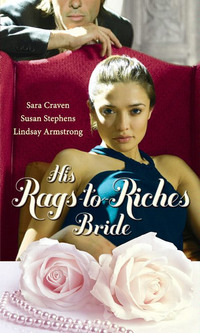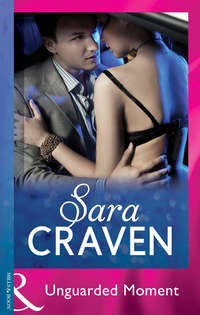
Полная версия
Place Of Storms
Aunt Marian gave a slight smile. ‘If she were a grandmother, I don’t think it would alter his attitude in the slightest degree. He doesn’t approve of this decline in morals they talk about. He feels people in public life should set an example—he always has done.’ She sighed. ‘Of course, I’ve never breathed a word of this to Clare herself. I didn’t want to burden her with that kind of responsibility, but I don’t know whether I was right. Anyway, she’s found Peter, so I no longer have any worries on that score.’
Andrea looked at her aunt for a long moment, registering the air of serenity that hung almost tangibly about her. Could she really sit back and see that destroyed? she thought despairingly. Clare was a fool, but marriage to Peter might be the salvation of her, after all.
She got up, forcing a smile.
‘Excuse me, will you? I’ve just remembered—there’s something I have to tell Clare.’
Andrea pulled the car into the side of the road, applied the brakes and sat for a moment with her eyes closed. Then she twisted round in her seat and stared back grimly, assimilating almost with disbelief the road she had just ascended.
The late October sun hung low over the valley, and she could see the road like a thin white ribbon winding along the valley side, disappearing at intervals into sheltering clumps of bare trees. On one side of her there had been a towering wall of forbidding black rock, on the other an unfenced drop down to the gleam of the river far below her. She was thankful that the long drive from Paris had given her a chance to at least familiarise herself with the car before she was faced with these conditions, and she had clung to the wheel with grim determination as she mounted through a succession of hairpin bends, praying she would not meet anything coming in the opposite direction.
She looked at the heavy clouds massing in the west and grimaced. All during the drive, the weather had been perfect—golden and autumnal. She had put to the back of her mind all the things she had heard about Auvergne—a place of storms, she’d read somewhere, where the weather was eternally in conflict with itself. Judging by those clouds, war would soon be declared once again!
She reached for her road map and sat studying it, her brows furrowed slightly. Blaise Levallier was making few concessions to his future wife, she thought, asking her to make her own way to this inaccessible place. In itself, this seemed to contain an element of warning, silently conveying the amount of courage and self-sufficiency it would require to survive in this bleak mountain region with its dead volcanoes, and buildings that seemed to have been hewn from solid lava. Yet, in spite of her nervousness, Andrea had to acknowledge its strange compelling beauty. And of course, she told herself, she was not going to be asked to survive here. She gave a slight mischievous grin as she imagined what Clare, a nervous driver at the best of times, would have said when confronted with the valley road she had just traversed. That might have been one way of solving the problem, she thought, stifling her mirth. How would the unknown Blaise Levallier have coped with a bride who applied her handbrake and stubbornly refused to budge? Anyone as determined as he seemed to be would probably have hired a tractor from one of the hill farms and had her dragged to St Jean des Roches.
She sobered slightly as she put her map away. She had only a few kilometres to go to her destination, and the thought was singularly unappealing. A warning voice inside her seemed to be saying it still wasn’t too late to turn the car around and drive back to the comparative sanity of Clermont-Ferrand. She could leave the car there and get a train back to Paris. If Clare had been her sole consideration in all this, she might just have done it, she thought as she re-started the car.
She had made that brutally clear to Clare as well, not just that first night when she had reluctantly agreed to go to St Jean des Roches in her cousin’s place, but during the subsequent discussions that had taken place. Clare seemed convinced that the incriminating papers would be quite easy to find, but Andrea was not so sure.
‘Ask to see them,’ Clare had suggested. ‘Say you’re not too sure about the wording—oh, you’ll think of something.’
‘I’ll have to,’ Andrea conceded rather drily.
She had read Blaise Levallier’s letters, especially the last one, a dozen times, until she felt every word was imprinted on her memory, and as she read, a slow anger was kindled. Who was this man who thought he could threaten the people she loved and damage their happiness and well-being with impunity? He was simply not going to get away with it. Clare might have been an utter fool, but at least she had seen the error of her ways in time, and he should have had the decency to release her from the ludicrous promise she had made him when she asked him to. Was he so unfeeling that the thought of life with a girl he had literally forced into marriage and for whom he could have no emotional attachment could actually seem tolerable?
If so, his reasons for wanting this hasty marriage must be extremely cogent ones. She had questioned Clare closely about them, but Clare had destroyed the earlier correspondence with him long ago, and was aggravatingly vague about their contents. She maintained, however, that he had not been at all specific, except about the urgency of his need for a wife at least on paper. That he had said it was ‘a legal necessity’ was almost all Clare could recall. Andrea had brooded about those words, but they still conveyed very little to her. She had also tried to probe further into the reasons for Martine’s family’s strong disapproval of their distant cousin, but she’d met with no more success here. The most Martine’s parents had let drop were veiled hints, Clare said. But if he regularly made a habit of blackmailing people to get his own way, he was far from being a desirable connection for the eminently respectable Montcours, Andrea thought.
The more she considered what lay ahead of her, the more her apprehension grew. She must be as crazy as Clare to imagine she could get away with this. Just what kind of a man was she going to find waiting for her at St Jean des Roches? she asked herself. Apart from being simply undesirable, had he been guilty of some crime, that he was so reluctant to show his face in more civilised places, and had to find himself a wife by correspondence? And if he was such a villain, what chance did she have to outface him? Andrea sighed. It had never seemed more certain that she was heading for big trouble, but she seemed to be committed now. If she did not arrive at the chateau, Blaise Levallier would undoubtedly set enquiries in train as to her whereabouts, and this would lead to all the problems she had come here precisely to obviate. No, she had to go on. Get in, get the papers, and get out, she told herself. In theory it sounded simple.
She groaned slightly as the first raindrops spattered against the windscreen, and set the wipers in motion. That was all she needed—a strange road, and a rainstorm.
She wondered what Blaise Levallier had thought when he received Clare’s meek letter, accepting his terms and telling him the date of her arrival. They had expected some kind of response, probably gloating, but there had been none. She had half hoped that the promised car would not be at the airport so that she would have a golden excuse to take the next plane back to London, but her hope had not been fulfilled. Blaise Levallier might waste no time on unnecessary letters, but his arrangements were efficient enough.
One of the major difficulties confronting her was that she had little idea precisely how much Clare had disclosed about herself during this brief early correspondence she had had with this stranger. It was fortunate that she and Clare had always been on such close terms, she thought, but she still felt anxious. Once again, Clare’s memory had been vague, but she insisted that she had not mentioned her parents, or her background. Her letters had concentrated more on the good time she was having in Paris. Andrea wrinkled her nose. Clare’s idea of a good time was not always hers, she reflected, and she would have to explain away any discrepancies with the excuse of a poor memory. She also realised that Clare’s personality emerged through her letters to a certain extent, and that she would have to act a part for some of the time at least. It was an unnerving thought, but she told herself that if she was very lucky, she might have completed her task and got away from the chateau before any potentially embarrassing explanations or situations arose.
It was suddenly much darker, the friendly sun hidden now by the threatening clouds, and in the distance she heard a low rumble of thunder, curling away. It’s a good job I’m not superstitious, she thought, or I might think it was an omen.
The rain had settled to a steady downpour by the time she reached St Jean des Roches some half an hour later, and her neck and shoulders ached from the concentration needed to hold the car on the winding and unfamiliar road.
The village looked little different from others she had passed through on the way, a huddle of houses around a main square with a central fountain. A pale-washed campanile reared itself towards the lowering skies. Beyond the square, the road led upwards again at a gradient which set her nerves twitching. Whoever had christened this place had not been mistaken, she thought. The village itself seemed to have been literally carved out of the side of a rock and she supposed the chateau must be perched dizzily at its summit, somewhere above her.
Her headlights picked out a building of sorts ahead of her and she slowed, peering through the windscreen, uncertain that she had reached the right place. It appeared to be a gatehouse, arching over the road, but the gates themselves were missing, she realised as she drove cautiously through the narrow opening.
For a moment, she thought her lights picked out a face at one of the gatehouse windows, staring down at her, and then her attention was totally diverted by what lay ahead of her. She braked and switched off the engine. Then she sat, staring around at the scene illuminated before her. Slowly and incredulously, she thought, ‘But it can’t be true … this can’t be the place!’
A chateau in Auvergne, Clare had said, but the picture she had formulated in her mind bore no resemblance to this—ruin she was faced with. How many years of neglect had been needed to produce this effect? she wondered as her eyes wandered over the dark bulk of the building, and the graceful pepperpot tower which rose at one side of it like something from a mediaeval fairytale. There had been a wing once, jutting from the other end of the building, opposite to the tower, but much of it seemed now to consist merely of tumbled masonry. And the main building was dilapidated in the extreme. There were tiles missing from the sloping roof, and on the first floor, some shutters hung crazily from the windows.
She tried to tell herself it was a mistake, and that no one actually lived there, but a thread of smoke hanging above one of the chimneys told her she was mistaken.
Andrea felt anger rising slowly within her. How dared anyone have let this little jewel of a place decay like this? she thought wildly. And was this really where Blaise Levallier expected gay, comfort-loving Clare to live through the bitter Auvergne winter? It would be like asking a hothouse orchid to flourish at the North Pole. She switched off her lights as if the sudden darkness that descended could also obliterate the reality.
Could he, when he had traced Clare, have learned that she was a considerable heiress? Was this why he had tried to force through their strange marriage so high-handedly? Perhaps Clare’s money was intended to restore all this crumbling glory of the past. A sudden gust of anger overcame her and with it a new determination to outwit this man, and she slammed down her hand on the horn, waking the echoes with its blare.
For a moment nothing happened, then the great central door swung open and a woman appeared carrying an enormous black umbrella. Andrea watched her for a moment as she struggled across the weed-strewn courtyard, avoiding the puddles that had rapidly collected in the broken flagstones, then, setting her chin, she collected her handbag and threw open the driver’s door.
The wind had risen, she realised, as a sudden gust caught at her, dragging her hair free of the chiffon scarf which confined it at the nape of her neck. She had to catch hold of the car to steady herself.
‘Mademoiselle!’ The woman had reached her side and was struggling to hold the umbrella over her head. ‘Permettez-moi. Je vous souhaite bienvenue à St Jean des Roches.’
Somewhat faintly, Andrea murmured her thanks, and found her hand tucked firmly through the woman’s arm. Is she frightened that I’ll blow away, or run? she wondered as they started off across the courtyard, heads bent against the stinging rain. As they reached the open door, Andrea remembered something.
‘Oh, my case!’ She turned to go back for it, but the woman tugged at her insistently, mouthing something at her. Andrea could not make out precisely what she said, but she gathered that someone named Gaston would be delighted to fetch her case for her at a later time, but that now Monseigneur was waiting.
And we can’t have that, can we? Andrea thought caustically as she went into the chateau.
The door led directly into what Andrea surmised had originally been the Great Hall of the chateau, but which now shared in the general air of dilapidation. Her first comprehensive glance took in an enormous fireplace, chill and empty, dominating one wall. A table carrying a large old-fashioned oil lamp had been placed against another, and a case of guns hung above it. A few threadbare rugs which might once have been valuable covered the stone floor.
The huge umbrella was quickly shaken free of surplus water and deposited back in a stand beside the main door, holding in addition a number of walking sticks. Then the woman turned to Andrea with a beaming smile, introducing herself as Madame Bresson, the housekeeper. Having said it, she gazed round the hall and gave a deep sigh—as if aware that their surroundings were not a great advertisement for her capabilities, Andrea thought with faint amusement. She herself felt it would take an army of Madame Bressons to restore the chateau to anything approaching its former glory. As she crossed the hall in the housekeeper’s wake, she noticed, that the tapestry seat covers on several of the high-backed chairs standing against the walls were worn into holes.
One wave of the magic Weston money wand, and the whole chateau will turn back into a pumpkin, she thought angrily.
They stopped outside a heavy door, its timbers pitted with age and wear. Madame Bresson knocked briskly and pushed the door open almost in the same gesture, then motioned encouragingly for Andrea to precede her into the room.
Andrea swallowed, her hands clenching themselves in-voluntarily into fists at her side, then she stepped across the slightly raised threshold.
It was a much smaller room, the walls panelled from floor to ceiling, and while shabby it presented some appearance of comfort. The large table occupying its centre had been set with a white cloth and cutlery, and a fire had been kindled in the wide fireplace.
A man was standing at the fireplace, one arm resting on the ornate stone overmantel. He was tall, Andrea saw, and slim to the point of leanness with long legs thrust into well-polished riding boots. She assimilated thick black hair, unwaving and rather longer than was strictly fashionable, and a dark arrogant face, high-nosed and hard-mouthed. Whatever she had expected, it hadn’t been this, she found herself thinking confusedly. When she had tried to picture her unknown adversary, it had been a much older man who had dominated her mind’s eye—thick-bodied and debauched. This man was in his late thirties, if she was any judge, and undeniably attractive.
Then he swung round to face her fully, and Andrea could not control her gasp of dismay. The proud face was marred, perhaps irrevocably, by the long scar which twisted the corner of his left eye and distorted the clean line of the high cheekbone. And even as she thought savagely, Damn Clare for not telling me, the realisation dawned that Clare could not have known.
Was this why Blaise Levallier had felt bound to carry out his wooing, such as it was, by letter? she wondered dazedly, and crushed away the instinctive feeling of compassion that accompanied the thought. The last thing this man wanted would be pity, especially from her.
As if he could guess what she was thinking, he paused a few feet away from her, a faint derisive smile curling the firm lips. His eyes were as dark and hard as the volcanic rocks under his feet as he looked her over.
‘Mon amour!’ Could she detect a note of mockery in the timbre of that low-pitched, slightly husky voice? ‘So you’ve come to me at last.’
Too shocked to protest, she felt long arms drawing her inexorably towards him. She closed her eyes instinctively as the scarred face approached hers. She felt as if she was in a dream, and then dreams were dispelled for ever by the devastating reality of his mouth on hers.
CHAPTER TWO
FOR one suffocating moment Andrea felt the hard pressure of his muscular body against hers. The sound of the closing door behind her, signalling the departure of Madame Bresson, jerked her back to her senses, and she tore herself free of his arms, facing him with flaming cheeks.
‘That was not part of the agreement.’ She wanted to sound cool and in control of the situation, but to her annoyance her voice came out high and breathless like a little girl’s. Anyone would think she had never been kissed before in her life, she thought vexedly.
He shrugged, and again she was aware of that faint amusement.
‘Yet it was the reaction expected of us, and it is dangerous to ignore the conventions on these occasions. Our—arrangement is a private one. I imagine you do not wish it to become a matter for speculation in the village.’
She bit her lip. ‘No, of course not. I—I wasn’t thinking. You—you rather took me by surprise.’
‘Evidémment,’ he murmured. ‘I shall have to signal my intentions more clearly in future.’
Now how would Clare react to that? Andrea wondered confusedly. Coquettishly, probably, knowing her. But it was not a response she would dare to try with this man. His scarred face was unimportant. There was about him a kind of sensual magnetism which transcended ordinary physical appeal. Yet she should be able to handle him. She was used to working with men, treated as their equal. Any emotional involvements there had been, she had kept on the lightest possible level.
For one crazy moment she thought, ‘I’m frightened of him—frightened of what he could make me feel emotionally.’ And then a warning shutter came down in her mind, telling her that she was being nonsensical, and that her senses were playing tricks because she was overtired after the drive.
‘Did the journey cause you any problems?’ he asked, and it occurred to her that he spoke excellent English. She recalled that Clare had mentioned something about him having possibly spent some time abroad.
‘No. It’s not the first time I’ve driven on the Continent.’ She sounded impossibly stilted, she thought.
‘Perhaps not, but you did not give me the impression that you were totally confident in your driving ability.’
That was her first slip, Andrea told herself furiously. She might have known Clare would probably have poured out her numerous driving mishaps. She had a knack of making them sound feminine and absurd.
She shrugged slightly, making herself smile. ‘Well, I didn’t actually kill anyone on the way.’
‘God is merciful.’ The scarring gave him the look of a satyr, it occurred to her. ‘Permit me to take your coat.’
She tensed involuntarily as his hands came down on her shoulders, but this time his touch was as impersonal as she could have wished.
A heavy wooden settle stood on one side of the fireplace and he invited her to take a seat on it with a wave of his hand. He remained standing.
‘Dinner will not be long.’ He glanced at his watch. ‘Would you care for an aperitif, or would you prefer to go to your room before the meal is served?’
‘I’m quite glad to be sitting still,’ she said frankly. ‘Besides, my cases are still in the car.’
‘Ah, yes. You will wish Gaston to fetch them.’ He tugged at a frayed tapestry bell pull hanging at the side of the fireplace and a bell jangled faintly in the distance. He walked over to the massive, heavily carved sideboard against one wall and picked up a bottle, turning to her with raised eyebrows. ‘Dubonnet? Or do you prefer sherry?’
‘Dubonnet will be fine,’ Andrea said rather helplessly. The situation was fast slipping out of her control. Here she was having a pre-dinner drink with this man as if he was merely her courteous host and nothing more. It was unthinkable that they were going to spend the evening mouthing a lot of polite nothings at each other. There was so much she needed to know. First and foremost it was essential to discover if there was any likelihood of him voluntarily relinquishing his plan to marry Clare even at this late stage. She glanced up with a shy word of thanks as he handed her the drink, and registered the bitter, almost brooding look he wore, and the hard lines of his chin and mouth. He did not look the sort of man who could be easily persuaded about anything, she thought uneasily.
‘We’ll drink a toast.’ Once again she was aware of that quiet element of mockery. ‘To our—better acquaintance, mademoiselle.’
She murmured something indistinguishable as he touched his glass to hers, and hoped he would blame the heat of the fire for the sudden colour which tinged her face. It was a relief when the door opened and a short stocky man with a brown weatherbeaten face and round, rather staring eyes ambled in.
‘M’sieur?’
‘Ah, Gaston.’ Blaise Levallier turned to him, and spoke a few quiet words in his own tongue. Then he turned to Andrea.
‘He will need your keys, mademoiselle.’
She hesitated a moment, oddly reluctant to part with them. The car was her passport to safety, after all, and it gave her a sense of security to know that its keys were in her keeping.
‘You need not worry. Gaston is simple, it is true, but he is also completely trustworthy and devoted to my family.’ Blaise Levallier sounded ironic. ‘He is perfectly capable of rescuing your baggage and taking it to your room, I promise you.’
She flushed more hotly, annoyed that she was unable to justify her hesitation. She delved into her handbag and produced the key-ring, dropping it into Gaston’s waiting palm, murmuring her thanks.
When the door had closed behind him, Blaise Levallier said, ‘He speaks no English, I should warn you, but I don’t think you will have any difficulty in making him understand you. Madame Bresson—Clothilde—is his aunt and has cared for him since he was a child. He helps with some of the heavy work around the chateau, and assists the herdsmen with the cattle. He is magnificent with the beasts and with the horses. He has a skill born of instinct.’
She nodded constrainedly and sipped her drink. It was essential, of course, for the future mistress of the chateau to be acquainted with these details, but it was a far cry from all she really needed to know. For a moment she found herself wondering how Clare would have reacted to Gaston. Her cousin had an undue sensitivity about all forms of abnormality, and would have had difficulty in adapting herself even to Blaise Levallier’s scarred face, she realised.
‘What—other help do you have?’
‘Very little, as you must have noticed, in the house. The land, of course, is different. But there we all work for each other.’
She looked up at him in surprise, and he explained.











